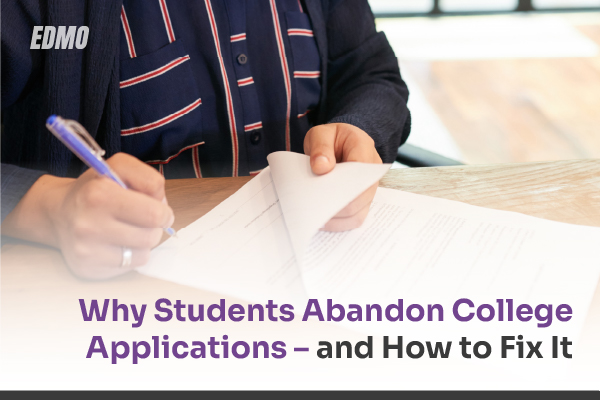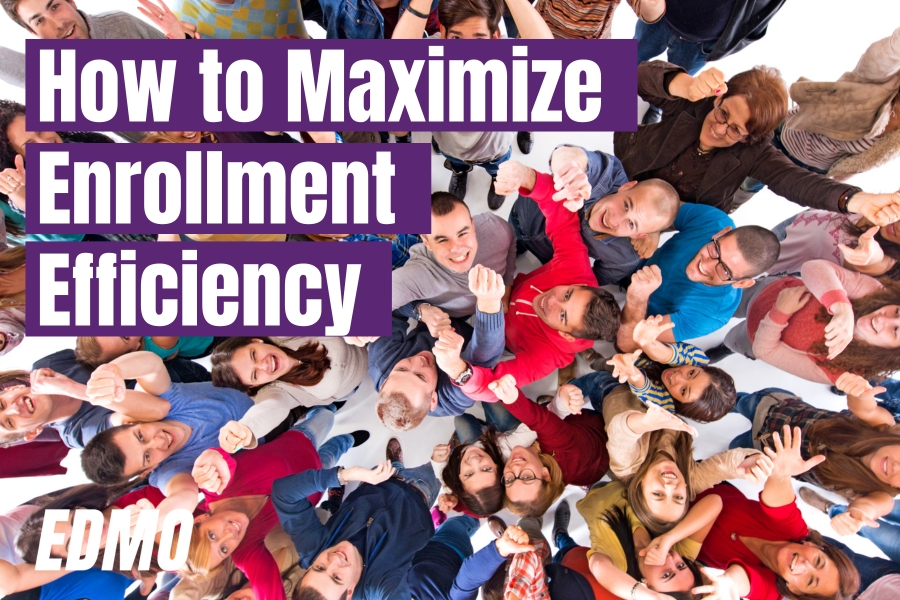However, despite their potential, international students often face challenges in securing employment post-graduation. Multiple countries are experiencing increasing challenges for international students. In Canada, increased immigration, decreased housing and decreased job opportunities have resulted in fewer opportunities for international students to stay in the country post-graduation. National unemployment rates have reached 6.1%, and that number has doubled for young people. According to crunchbase.com, US job opportunities have also decreased. There have been over 54,000 tech layoffs in 2024 thus far, in addition to over 300,000 layoffs in 2022-2023.
From visa complexities, limited working hour requirements, to unfamiliar job markets, institutions must step up to support these students in their career journey. If these institutions can take charge in improving student employment after graduation, they will see their brand build among international students.
Here are five powerful ways colleges can boost employment success for international students.
1. Offer Career Workshops and Information Sessions
Career preparation is top of mind for international students, with 42% of respondents from the Terra Dotta survey indicating they need more support in finding employment in the U.S.
To address this, colleges should offer specialized career workshops that focus on:
- Interview techniques and question practice tailored for the U.S. job market.
- Information on work visas, permits, and employer sponsorship, including guidance on how to get employers to sponsor them.
- Resume guidance and workshops.
- Networking strategies for a new cultural context, including specific employer-international student job fairs.
Workshops like these can help explain the U.S. job market, contextualize their classes, and expand networking opportunities.
2. Create Opportunities for Internships and Work Experience
Internships are a critical stepping stone to full-time employment, yet international students often struggle to secure these opportunities. Colleges should partner with local businesses and industries to create internship programs that welcome international talent. Additionally, universities and colleges that offer Day 1 CPT, or Curricular Practical Training, can attract students who are looking to gain work experiences and combat the issues of attaining work sponsorship in the United States. Colleges who offer Day 1 CPT often experience boosted foreign enrollment rates. Internships, work experience and CPT provide students with:
- Hands-on experience in their field of study.
- A deeper understanding of US work culture and employment processes.
- The chance to build professional networks that can lead to future job offers.
Plenty of businesses would be interested in hosting internships, especially unpaid work for students. These internship opportunities would enhance these students’ resumes and open doors to long-term employment after graduation.
3. Facilitate Networking and Alumni Mentorship Programs
Networking is a key part of the job search process, but international students often need help navigating it in a new country. By facilitating networking events, job fairs, and alumni mentorship programs, institutions can connect students with:
- Alumni who were once international students themselves and understand their unique challenges.
- Potential employers who are open to hiring international graduates.
- Industry professionals who can offer career advice and opportunities.
Students in the Terra Dotta survey expressed a strong desire for cultural and cross-cultural activities that foster these connections, with 45% requesting more opportunities for peer guidance and interaction.
4. Provide Language and Soft Skills Training
While international students are often highly skilled in their academic fields, many face challenges with language barriers and soft skills needed for professional success. According to the Terra Dotta data, a significant portion of students found the academic workload and pressure to succeed stressful. Universities can improve their international student’s language and soft skills by including courses for students with the following subjects:
- College life, schedule building, professional experiences, and communication.
- Professional English language skills for the workplace.
- Communication, leadership, and teamwork.
- Public speaking and presentation skills.
These programs can help international students feel more confident in their abilities to succeed in both academic and professional settings.
5. Support Job Placement and Visa Guidance
One of the biggest concerns international students face is finding employment in the U.S. after graduation, especially given the complicated visa processes. The Terra Dotta survey found that over 43% of international students needed help finding employers to sponsor their work visas. To address these concerns and establish themselves as a high-employing college, institutions can:
- Provide career services staff who specialize in international job placements.
- Host career fairs featuring international-friendly employers.
- Offer one-on-one counseling on work visas, permits, and sponsorships.
With over half of international students planning to stay in the U.S. after graduation, offering this kind of guidance can make all the difference in their ability to secure long-term employment. New technologies provide renewed ways for universities to find insightful data, helpful in improving the employability of their students, including iSchool360’s Employment success module.
Conclusion
The employment potential for international students can be significantly enhanced with the right institutional support. From career workshops, Curricular Practical Training and internships, to visa guidance and networking opportunities, colleges that invest in these areas will not only help their international students succeed but benefit the university by providing a larger and more powerful international brand. Universities with strong international brands will require less investment in on-the-ground recruiting in these student’s home countries.
Further, colleges that capitalize and advertise on their ability to help students succeed in securing post graduation jobs, will attract greater interest from international students seeking the best-fit programs. Addressing these needs can transform the career prospects of international students for the better, and boost the institution’s standings.
Explore how you can boost your institution’s ability to attract international students by taking advantage of analytic data, with this employment success video.
Also Read:
6 strategies to foster academic success at your institution
6 tips on how to boost student engagement with limited resources
7 statistics to track student outcomes
8 tools that are helping curb summer melt







